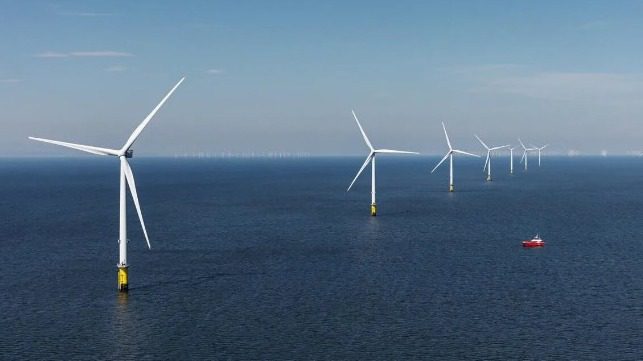Danish offshore wind company Orsted is partnering with offshore gas firm Neptune Energy on a plan for integrated operations in the UK North Sea.
The idea of running offshore oil and gas platforms on local offshore wind power has taken hold in Europe and Scandinavia, and the first project is already under way at Equinor’s Hywind Tampen site. On the UKCS, the Scottish government has conducted a large offshore-wind lease round focused on supplying offshore oil platforms with emissions-free power. It is a relatively low-cost way to cut large quantities of emissions from E&P operations, which are energy-intensive and rely on large quantities of natural gas for power.
The /Neptune partnership goes a bit further. Working together with service provider Goal7, they want to build “integrated energy hubs” on the UKCS. These wind-powered hubs would deliver energy for existing oil and gas platforms, CO2 sequestration operations, and hydrogen production plants. The hubs could be built with new and reused offshore infrastructure, and could lower the cost of electrifying operations for an especially green purpose: carbon injection for subsea CO2 storage.
The partners will first examine the feasibility of transferring electricity from Orsted’s Hornsea wind complex to Neptune’s future projects in the UK North Sea. Goal7 will provide technical support and project management.
“The development of integrated energy hubs is an important part of Neptune’s strategy to store more carbon than is emitted from our operations and the use of our sold products by 2030,” said Neptune’s director of new energy, Pierre Girard. “Neptune has submitted three applications under the recent [UK] Carbon Dioxide Appraisal and Storage Licensing Round, and securing the licences would enable us to develop future proposals for integrated energy hubs in the UK North Sea.”
Hornsea is going to be the largest offshore wind farm complex in the world, and for Orsted, having a new power purchaser in the North Sea will create “new and alternative routes to market.” Using green power for carbon injection is even better, doubling down on the climate-friendly potential of offshore wind.
“Supporting the decarbonisation of other industrial sectors and providing renewable energy to enable more sustainable carbon storage is an important consideration as the UK transitions towards a low-carbon economy,” said Duncan Clark, Orsted’s managing director for offshore and country chair for the UK and Ireland.
Neptune is the operator of the Cygnus field, Britain’s largest producing natural gas field. It is also actively working on the Seagull gas project with BP and JAPEX, with first gas expected next year.
Neptune also has a 50 percent interest in the Isabella exploration discovery, a hotly-anticipated gas and light oil field with estimated reserves of up to 120 million barrels of oil equivalent. Appraisal drilling began in August and results are expected towards the middle of next year.





